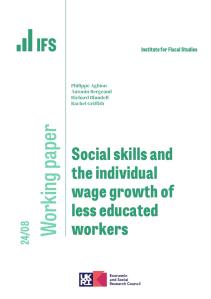In this paper, we use an economic model to analyse data from a major randomized social experiment, namely PROGRESA in Mexico, and to evaluate its impact on school participation. We show the usefulness of using experimental data to estimate a structural economic model as well as the importance of a structural model in interpreting experimental results. The availability of the experiment also allows us to estimate the program's general equilibrium effects, which we then incorporate into our simulations. Our main findings are (i) the program's grant has a much stronger impact on school enrolment than an equivalent reduction in child wages; (ii) the program has a positive effect on the enrollment of children, especially after primary school; this result is well replicated by the parsimonious structural model; (iii) there are sizeable effects of the program on child wages, which, however, reduce the effectiveness of the program only marginally; and (iv) a revenue neutral change in the program that would increase the grant for secondary school children while eliminating for the primary school children would have a substantially larger effect on enrollment of the latter, while having minor effects on the former.
Find the working paper here.











